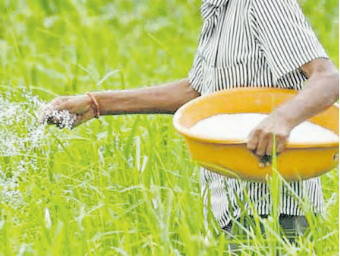
FARMERS have been urged to adopt nanotechnology-based fertilisers to increase crop production, mitigate the effects of global warming and improve soil health.
Henry Monda, the managing director of Ancient Bioorganics, said many nutrients are present in the soil but not in a form that plants can absorb.
The company produces the nanotechnology-based BioProp FHB fertiliser that makes the nutrients available.
“Our product helps convert them into bioavailable forms,” he said.
Monda said BioProp FHB is a bio-fertiliser composed of microbes that enhance nitrogen fixation and unlock nutrients in the soil, making them available for plant use.
He said BioFHB promotes uniform crop growth, which is crucial for quality harvests.
“A uniform crop is a sign of healthy, productive farming,” he said.
The fertiliser also ensures better germination, even in challenging weather conditions caused by climate change.
Monda said unlike synthetic fertilisers, BioProp FHB reduces the risk of seed failure due to environmental stress, preventing a phenomenon known as cell apoptosis, whereby seeds die prematurely.
He said crops fertilised with BioProp FHB show increased resistance to diseases.
Fields treated with that fertiliser exhibit significantly fewer infections compared to those fertilised with conventional fertilisers BioProp FHB comes in convenient four-gramme and 10-gramme packages.
A four-gramme packet is enough to treat 10 kilogrammes of maize, enough for one acre, making it easy to transport and apply.
“This product is so compact, it can even be shipped like an envelope to Europe,” Monda said.
He said the convenience of using BioProp FHB makes it increasingly popular in 12 countries.
On the application, Monda said it involves a simple process known as inoculation. Farmers treat their seeds by spraying them with the fertiliser before planting, ensuring optimal microbial activity.
He recommended applying the fertiliser in the evening in shade conditions to prevent heat from killing the microbes.
After spraying the seeds with diluted fertiliser solution, they should dry overnight before planting.
The four-gramme package should be mixed with no more than 300 millilitres of water, while the 10-gramme package requires as much as 500 millilitres of water for 25kgs of seed.
Using BioProp FHB has been shown to increase crop yields by four to 12 bags of 90kg per acre, Monda said.











